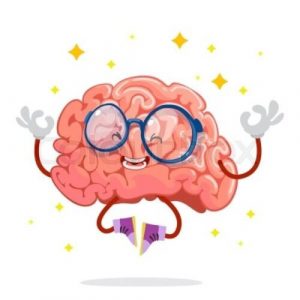WHAT IS INSOMNIA?
Insomnia is a sleep disorder in which you face trouble falling or staying asleep.
The condition can be short-term also called Acute insomnia or can last a long time called Chronic insomnia. It may also come and go.
Acute insomnia lasts for few days to a few weeks. Insomnia is chronic when it happens at least 3 nights a week for 3 months or more.
Types of Insomnia
There are two types of insomnia:
Primary and
Secondary
Primary insomnia: Primary insomnia means your sleep disorder is your primary problem, it is not linked with any other health condition or problem
Secondary insomnia: Secondary insomnia is actually linked with some health condition like asthma, depression, cancer, may be due to use of some medication, substance etc.
INSOMNIA CAUSES
Causes of primary insomnia include:
Stress related to big life events, like a job loss or change, the death of a loved one, divorce, or moving
Things around you like noise, light, or temperature
Changes to your sleep schedule like jet lag, a new shift at work, or bad habits you picked up when you had other sleep problems
Causes of secondary insomnia include:
Mental health issues like depression and anxiety
Medications for colds, allergies, depression, high blood pressure, and asthma
Pain or discomfort at night
Caffeine, tobacco, or alcohol use
Hyperthyroidism and other endocrine problems
Other sleep disorders, like sleep apnea or restless legs syndrome
Insomnia Risk Factors
Insomnia affects women more than men and older people more than younger ones. Young and middle-age African Americans also have a higher risk.
Other risk factors include:
Long-term illness
Mental health issues
Working night shifts or shifts that rotate
Insomnia Symptoms
Symptoms of insomnia include:
Sleepiness during the day
Fatigue
Grumpiness
Problems with concentration or memory
Insomnia Diagnosis
Your doctor or counselor will do a physical exam and ask about your medical history as well as sleep history.
They might tell you to keep a sleep diary for a week or two, keeping track of your sleep patterns and how you feel during the day. They may talk to your bed partner about how much and how well you’re sleeping. You might also have special tests at a sleep center.
INSOMNIA CALCULATION
Our bodies and brains need sleep so they can repair themselves. It’s also crucial for learning and keeping memories. If insomnia is keeping you awake, you could have:
A higher risk of health problems like high blood pressure, obesity, and depression
A higher risk of falling, if you’re an older woman
Trouble focusing
Anxiety
Grumpiness
Slow reaction time that can lead to a accident during travel.
INSOMNIA PREVENTION
Good sleep habits, also called sleep hygiene, can help you beat insomnia. Here are some tips:
- Go to sleep at the same time each night, and get up at the same time each morning. Try not to take naps during the day, because they may make you less sleepy at night.
- Don’t use phones or e-books before bed. Their light can make it harder to fall asleep.
- Avoid caffeine, nicotine, and alcohol late in the day. Caffeine and nicotine are stimulants and can keep you from falling asleep. Alcohol can make you wake up in the middle of the night and hurt your sleep quality.
- Get regular exercise. Try not to work out close to bedtime, because it may make it hard to fall asleep. Experts suggest exercising at least 3 to 4 hours before bed.
- Don’t eat a heavy meal late in the day. But a light snack before bedtime may help you sleep.
- Make your bedroom comfortable: dark, quiet, and not too warm or too cold. If light is a problem, use a sleeping mask. To cover up sounds, try earplugs, a fan, or a white noise machine.
- Follow a routine to relax before bed. Read a book, listen to music, or take a bath.
- Don’t use your bed for anything other than sleep and sex.
- If you can’t fall asleep and aren’t drowsy, get up and do something calming, like reading until you feel sleepy.
- If you tend to lie awake and worry about things, make a to-do list before you go to bed. This may help you put your concerns aside for the night.
INSOMNIA PERMANENT SOLUTION:
- Practice– Breathing Exercises
- Yog Nidra
- Mediation
- Hypnosis
- Regular walk-Early Morning and Night walk before bed.
- Maintain Healthy Lifestyle with Healthy Natural Diet
INSOMNIA INSTANT SOLUTION:
Reverse counting with closed eyes like from 100-1 or 50-1.
Eyes Blinking open/close movement.
Lay on bed without pillow and focus on third eye.
Lay on bed without pillow and focus on your breath. As you slow down your breath, you brain will enter in sleep mode.
Ohm Chanting with focus on your forehead. In case of neck muscle pain, focus on Neck muscle place.
Still facing issue, You need one to one personal counselling.






Thanks for such information,it help me alot
Thanks
Great information.Great website
Unique Article always read your posts.Great job
Thanks
Thanks